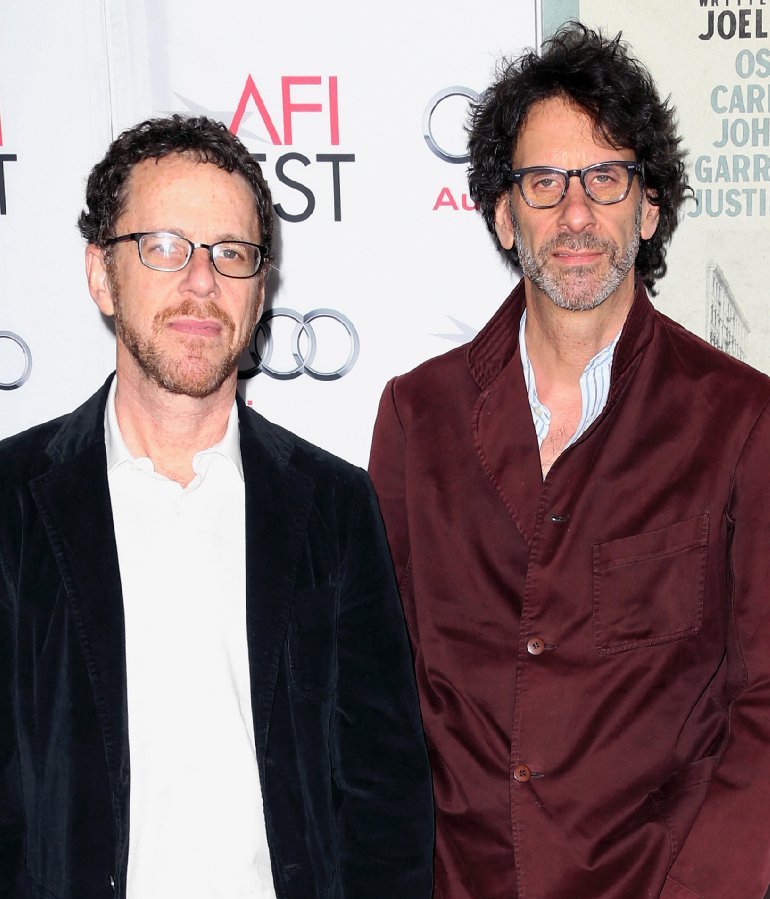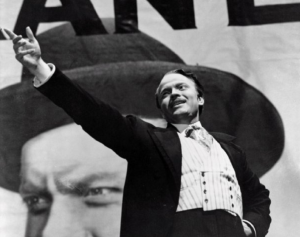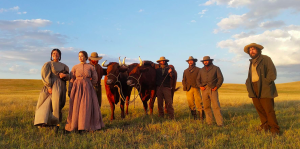With the release of Hail, Caesar! last weekend, Joel and Ethan Coen have put out their seventeenth feature film, more than 30 years on from thei r 1984 debut Blood Simple. As a new Coen release is always an occasion worth celebrating, I think it’s appropriate to engage in that age-old critical tradition of list-making. The Coens, of course, are frequent subjects for lists like this – their films are both popular and respected, they play in many genres, and lately their body of work has been hanging at a good number of films that gives itself to list-making (fewer than 10 isn’t much to work with, but more than 20 is too unwieldy). That said, there’s relatively little consensus across the board – sure, almost everyone likes The Big Lebowski and no one much cares for The Ladykillers, but there’s a lot of debate as to how these films hold up compared to each other. With that in mind, here is my ranking, humbly submitted.

IMDb
- Intolerable Cruelty (2003)
Except for The Hudsucker Proxy, which was co-written by the brothers’ mentor Sam Raimi, Intolerable Cruelty is the only Coen film where they don’t receive sole writing credit – and it really feels like it. Due to the echoes of the original draft by Robert Ramsey and Matthew Stone (not the one you’re thinking of), it really does feel like someone else’s film, which wouldn’t be a bad thing if that film were a bit more intelligent.
There’s not a whole lot wrong with Cruelty, as such, except for maybe its entire underlying logic (Marriage! Am I right?!). But even that aside, there’s little to admire. George Clooney and Catherine Zeta-Jones’ performances are pretty phoned in, and even though there are some funny scenes scattered throughout the film (Geoffrey Rush gives the film a promising opening), it really does belong at the bottom of the pile.
- The Hudsucker Proxy (1994)
For reasons I can’t entirely understand, this film has been the subject of a number of attempts at reassessment over the years, usually emphasizing its ambitious visual design and its whimsical, Capra-esque story as its unappreciated strong points. On one hand, there is a certain sense of grandeur here that the Coens, for better or worse, never really revisited, but then if this is Capra, it’s Capra at his worst – which people forget can be very, very bad.
Hudsucker isn’t a total waste, obviously – Tim Robbins and Paul Newman do some entertaining work, and there’s a respectable amount of ambition on display here in the set design and visual effects. In the end, though, there’s really nothing to the film at all, and it gets capped off with certainly the most embarrassingly trite and corny ending in Coen-dom, without much good beforehand to make up for it. It has all the depth of, say, a hula hoop, but I suppose that’s appropriate.
- The Ladykillers (2004)
Of the most commonly agreed-upon “bottom tier” Coen films, this is the one people seem least eager to defend, which probably has at least something to do with the fact that it’s undeniably inferior to the 1955 original with Alec Guinness. This doesn’t seem entirely fair to me – if people can go on about the virtues of Hudsucker or even Cruelty, they can spare a word or two for this deceptively dark comedy.
Really, The Ladykillers is about half of a good movie – the highlights of the film are definitely the scenes between Tom Hanks’ ostentatiously performed Southern gentleman and Irma P. Hall’s naïve churchgoing old woman (two rather underrated performances), but they get weighed down by all the botched heist nonsense with J.K. Simmons and Marlon Wayans. I feel like there could be something to these characters if they were just given room to develop on their own terms.
- The Man Who Wasn’t There (2001)
One of the most common criticisms against the Coens is that they’re basically sadists: they have no affection for the characters they create, and they put them in movies only to ridicule them and subject them to unfair punishment for its own sake. If this is true for any of their characters, it’s true for Billy Bob Thornton’s poor Ed Crane, for whom The Man Who Wasn’t There is simply one long, grueling trial.
It’s in the running for one of their most visually ravishing films (Roger Deakins shooting in black and white? Sign me up!), and it has a couple of genuinely affecting scenes, several of which come courtesy of Tony Shalhoub, but the whole thing is simply too cruel. It’s distant, cold, and unrelenting, and at times just plain mean; it’s an exhausting and disspiriting film to watch, all in service of…what, exactly? It’s a lazy sort of fatalism.
- Blood Simple (1984)
Blood Simple is frequently held up as one of the Coens’ finest and most enduring works, so this low placement might be controversial. Quite simply: I don’t see the appeal. Yes, it’s a tightly wound little neo-noir, it has some cool images, and it has M. Emmet Walsh, who makes most movies better just by standing around. It’s not that there are any glaring problems, and for a debut feature it’s pretty great, but that’s exactly what it is: a debut feature.
Blood Simple is the kind of indie success story that we see a lot: it’s well-made on a budget, it has a sense of freshness about it, it gets critical praise dumped on it, and five years later we never hear about it again…unless it turned out the Coen brothers directed it. Believe me, it’s really a fine film, no doubt. But a classic? The Coens’ best work was still ahead of them in 1984, and we wouldn’t be running back to Blood this much if it didn’t have the name recognition it does.
- Burn After Reading (2008)
The follow-up to the Coens’ Oscar-winning No Country For Old Men has never been one of their more beloved films, but I have a little bit of affection for it, and not just because it has a couple of scenes set around Georgetown. It has one hell of a cast to hold it up, with a real standout in Brad Pitt’s air-headed fitness trainer, and there’s certainly no shortage of humor, even if it does take a turn for the pitch black as the film winds down.
I do understand why Burn is usually considered lesser fare, though: for a film about espionage and stolen secrets, there never seems to be much on the line, and even major plot elements can come across as a bit obscure. However, making a film about intelligence officers where no one, not even the audience, really knows what’s going on is a prime Coen conceit, so even if it fumbles a bit I can’t help but admire its commitment.
- Hail, Caesar! (2016)
The Coens’ latest film is one of their funniest, as well as one of their most scattershot. It jumps freely from character to character, centered around Josh Brolin’s very busy and very Catholic Eddie Mannix and the disappearance of George Clooney’s Baird Whitlock. The film makes the most of its ‘50s-Hollywood setting, using the opportunity to lampoon both the films and the political attitudes of the time.
While Caesar! may lack focus or depth, it makes up for it in some truly inspired sequences, including most notably Channing Tatum’s extravagant (and surprisingly homoerotic) Gene Kelly-esque dance sequence and Tilda Swinton’s dual performance as sister gossip columnists. Some critics have noted that it feels mostly like a diversion between better films, but even if it is, it’s a thoroughly entertaining one, and sometimes that’s all you really need.
- O Brother, Where Art Thou? (2000)
It has one of the most Coen-y premises: The Odyssey but set in the Deep South. It established the brothers’ long-lasting collaboration with George Clooney. It has an absolutely killer soundtrack. O Brother has remained one of the most enduringly popular Coen films, and rightfully so, as it’s certainly one of their best crowd-pleasers. It’s a sepia-toned romp through a Coen-ized Mississippi Delta, filled with memorable characters and ear-wormy music. What’s not to like?
Sure, it’s not their most consistent work, and there’s not really a whole lot to it, but that’s part of its charm. Like its hero Ulysses Everett McGill, it’s a scrappy little thing, trying just about whatever occurs to it and ultimately, by dumb luck, succeeding. It’s an adventure film only the Coens could have made, bringing together everything from a one-eyed Klansman (courtesy of John Goodman) to a bipolar Baby Face Nelson to give new life to Homer’s epic.
- No Country For Old Men (2007)
No Country is a popular candidate for the Coens’ consummate masterwork, which is not a notion I can get behind. One can’t help, though, but to give it at least begrudging respect. The brutal crime tale is definitely a towering presence in their body of work, both in terms of technicals (it’s their longest and probably most grandiose undertaking) and content. Between the instant icon that was Javier Bardem as Anton Chigurh and the pitch-perfect channeling of Cormac McCarthy’s prose, it’s just impossible to ignore.
If the film has a glaring fault, it’s probably that it almost completely lacks the Coens’ trademark sense of humor, and that’s most of why it’s at the dead center of this list. To take nothing away from its many successes, without a few laughs No Country could never entirely feel like the brothers at the peak of their talent. It handles its glumness a great deal better than The Man Who Wasn’t There, at least. Where Man was petty and cruel, this one is merely distant.
- True Grit (2010)
This may also be a problematic choice, as their remake of the 1969 John Wayne western isn’t often ranked with the Coens’ best work. It even occasionally receives criticism for being a “sell-out” move; it was by far the brothers’ most commercially successful film, and it felt a great deal more conventional than the string of films they had made immediately before. I’m not convinced that automatically makes it a minor film, though, nor that it cancels out the film’s many virtues.
True Grit is the best kind of remake, the kind that both meaningfully updates and, in some ways, even improves on the original. While the original was a fine western in the classic, adventuresome mode, the remake opts for a more melancholy outlook, if one tempered by optimism, in what results in a more thoughtful film. Plus, even if we say that Jeff Bridges could never replace The Duke, Hailee Steinfeld more than won her claim to Mattie Ross. Move over, Kim Darby.
- Miller’s Crossing (1990)
While not necessarily one of their most famous images, the motif of the hat drifting in the wind in Miller’s Crossing has to be one of the best the brothers have conjured up. It’s simple, elegant, and totally transfixing, just like the film built around it. This tale of double-crossing amidst a war between the Irish and Italian mobs is certainly one of the more surprising Coen genre experiments, but even as it’s been overshadowed by its younger siblings, it still holds up nicely.
It has everything a good mob movie needs: a whole lot of intrigue, a healthy sense of style, and some cool characters, including what must be a career-best performance by Gabriel Byrne. It’s one of the more “serious” Coen films, to be sure, but it finds room for the occasional flash of humor, deftly maneuvering between tones in ways you wouldn’t expect from filmmakers on just their third feature. They’ve never made anything else quite like it.
- Raising Arizona (1987)
The Coens’ funniest film bar none, and coming right on the heels of Blood Simple, Raising Arizona is one of the most surprising sophomore features in cinematic history. It’s everything Blood wasn’t: fast, loose, goofy, and upbeat, and it marked right away the kind of thematic whiplash that would define the brothers’ career from that point on. Few things make me smile like Arizona does, and for reasons beyond the prime vintage Nicolas Cage performance.
It’s also, for the Coens, an uncharacteristically optimistic film, one that not only has everything work out just fine in the end (with relatively few casualties, at that) but also refrains from anything harsher than affectionately chiding its main characters. Much has been written about the final scene, a dream sequence where Cage’s H.I. McDunnough foresees a happy future, and how it doesn’t fit with the Coens’ usual outlook. Maybe they’ve gotten bitter since 1987, or could it be we’ve misjudged them?
- Inside Llewyn Davis (2013)
Llewyn, like a few of the final entries on this list, toes the line between comedy and tragedy so deftly that for whole sections of the film you may not know whether to laugh or cry. Llewyn is basically a story about failure and mediocrity, a good-not-great folk singer’s journey through poor personal and professional decisions and unfortunate coincidences that ultimately leaves him exactly where he started. A twisted Odyssey for the Bob Dylan wannabe set.
The heart and soul of the film is, of course, Oscar Isaac, who plays Llewyn as such a convincingly end-of-his-rope, laughably selfish jackass that you can’t help but at least follow him around, and maybe even feel for him a bit. It’s also a surprisingly beautifully shot film, with the Coens trading out frequent collaborator Roger Deakins for Bruno Delbonnel, with whom I really hope they work again sometime. Here, the humble streets of Greenwich Village are as pretty a setting as any the Coens have ever had.
- The Big Lebowski (1998)
If one hundred years from now the Coens are known for only one film, it would have to be this one. It has the quotes, the jokes, the hijinks, and (most importantly) The Dude. A film as bizarre as it is totally familiar, the stoner-noir-western stylings of Lebowski have become, to many, the defining Coen work and a cult classic to end all cult classics. No discussion on the Coens is complete without a mention of their single most abiding character.
Its reputation is mostly well-deserved. For a film that is, by design, pretty silly and structureless, Lebowski rewards multiple viewings and close reading, densely packed as it is with sight gags and subtle character quirks. It’s a film that moves a lot but doesn’t really go anywhere, one that provides most of its narrative momentum through inaction, one where the ultimate “point” may just be the virtue in “abiding,” whatever that means. I guess that is pretty Zen, isn’t it? Maybe the Dudeists are onto something.
- Barton Fink (1991)
The Coens’ fourth feature was their first significant critical success, picking up the Palme d’Or at the Cannes Film Festival and scoring a few unexpected Oscar nominations. It’s also still one of the Coens’ most hard-to-grasp films, a vague and troubling exploration of writer’s block and the artist’s relationship with the world, filled with strange recurring images that never clearly reveal their significance — assuming they mean anything in the first place.
Fink has been called a horror movie, and it’s a fitting classification, if sort of a cheeky one. The Coens take clear cues from The Shining in their design of Hotel Earle, and the finale is certainly disturbing. More than twenty years on, the Coens have never attempted to repeat the sheer dread that coats this film like cheap wallpaper — not even in No Country for Old Men or The Man Who Wasn’t There. It’s the great enigma of their filmography, and it’s impossible to ignore.
- A Serious Man (2009)
This grim comedy of Jewish life in 1960s Minnesota is probably the closest the Coens will ever get to autobiography. It’s about a lot of things — family drama, professional dilemmas, crises of faith, and the key to everything in the universe, just to start. None of these topics ever get fully resolved, of course — it’s not a true Coen experience without a lack of closure — but they are played out in ways that are both ridiculous and very true. There’s something transcendent about the idea of getting high just in time for your own bar mitzvah without anyone noticing.
This film has been charged with being too uncharitable to its characters. It’s not hard to see why: Larry Gopnik spends damn near the whole movie alternating between suffering and wondering why he has to suffer. The film was always intended as an updated Book of Job, and it commits fully to that premise, but of course there’s a lot more to Job than just his suffering. It’s the same here; Larry’s story is not simply the direness of his situation, and sometimes you really do just need to “accept the mystery.”
- Fargo (1996)
With the second season of FX’s television spin-off of the film having recently wrapped up, I think it’s important to remember this, the Coen’s masterpiece: a cold tale of incompetent criminals, drably snowy vistas, and the fruits of the efforts of good people. Compared to their other films, Fargo is fairly straightforward, and the humor is considerably muted, but on every level it’s such a perfectly executed film that these traits hardly seems to matter.
There are many things I could go on about in Fargo, but the one element that elevates it from a good film to a classic is its central performance: Frances McDormand as Marge Gunderson, a role so bursting with love and goodwill that it could only have been written as a love letter from Joel to his wife. Perhaps the only true hero in all of Coen-dom, and one of the best in all of cinema, Marge balances out all the crooks and liars in the rest of the film with just one “you betcha.” A pregnant cop may seem like an overblown symbol for something or other, but in Fargo she’s the least contrived thing in the whole movie, which for all its violence and treachery is ultimately just about the warmest, most unapologetically optimistic thing the brothers have put to film. In my mind, Fargo is undoubtedly their greatest achievement in a career full of them — with more, I’m sure, on the way.





